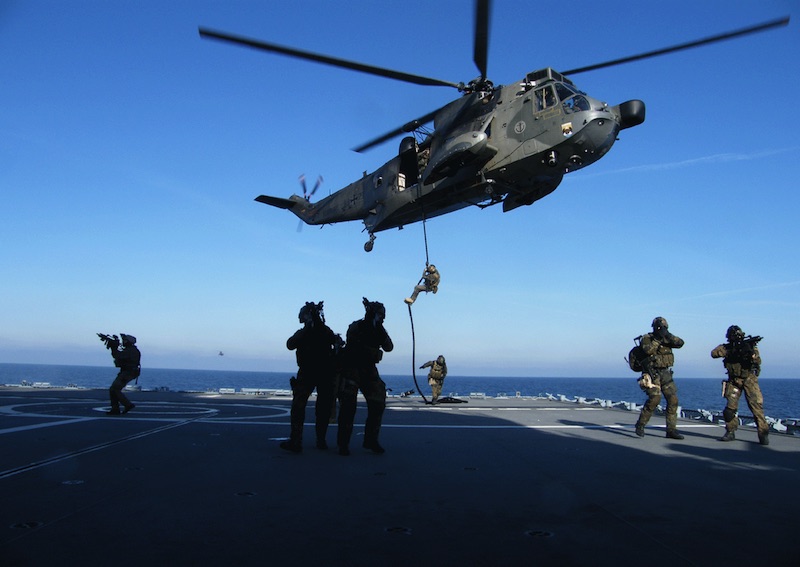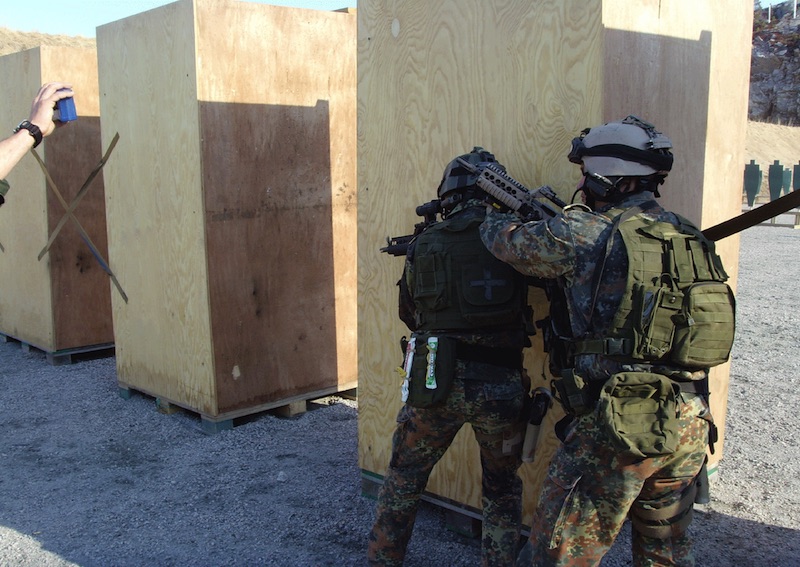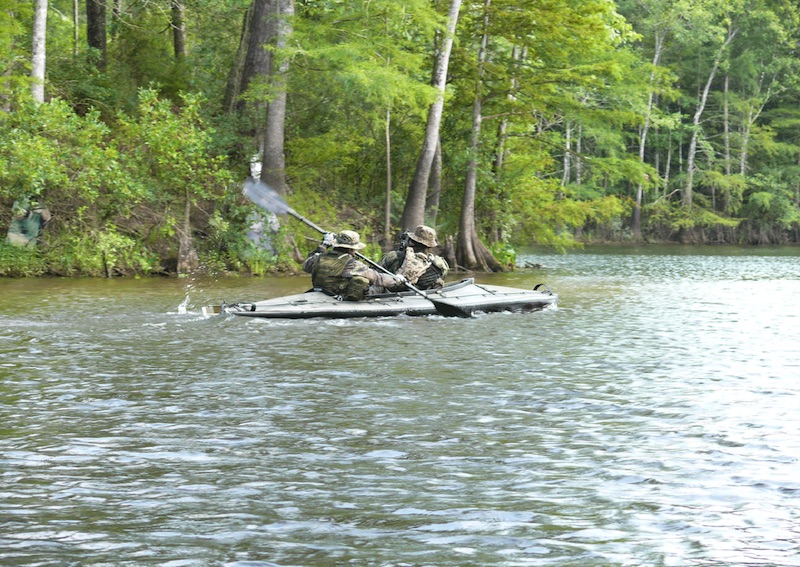Get the weekly SPARTANAT newsletter.
Your bonus: the free E-Book from SPARTANAT.

Among the combat swimmers
After three years of training, the time has come: the appointment as a combat swimmer. What happens next is explained in the article by KAMPFSCHWIMMER.DE: The new combat swimmer receives "his" badge in a simple ceremony, along with "his" appointment certificate, "his" combat swimmer certificate, and "his" combat swimmer number. He is officially accepted into the community of combat swimmers; a community that - in 55 years of this capability - counts only about 300 soldiers. With the soldier officially leaving the training inspection and reporting to the combat swimmer company in front of all active combat swimmers, the appointment is completed. Obviously, this simple ceremony reflects the end of the training.
It actually begins now!
For the "New Guy," a formative phase now begins. Like in any company, he must earn his "spurs." Fundamentals learned in training will now be tested in complex situations on a permanent basis. Thinking and acting within the framework of the team and with his superior are expected. Independence, carefulness for task-oriented actions, open eyes and ears, in other words, concentration of all senses on the overall situation, are the tools needed to successfully operate within the team framework.
Still without specialization (See Chapter Example for Specialization), the "New Guys" are deployed as machine gunners/ gunners in the team. A role that is physically demanding but also requires critical thinking. Machine guns are key weapons even in special units. They can be used as silent weapons for surveillance or in evasive drills to suppress enemy fire. Despite being a wide-area weapon, the combat swimmer gunner works with them spot-on and with high precision.
Traditionally - as is common in SEAL teams as well - all the often "unpleasant" jobs are taken on by the New Guys. For example, it is common for them to be responsible for cleaning the building, the team rooms, packing equipment, etc. They are observed by the most senior team NCO who monitors whether they perform these tasks enjoyably and thoroughly. Such duties not only shape the character but also reveal it!
During this time, the New Guys earn a nickname that will "follow" them throughout their entire military career and also serves to protect them. This practice is not unique but is common in every special unit. Soldiers can thus be addressed in missions without revealing their real names and violating identity protection.
 As hinted, life for the New Guy is exciting; they are usually the first in the morning and the last at night. They must absorb knowledge and experiences like a sponge and keep learning, learning, learning! The operational and training frequency, which leads to about 200 days away from the base + missions, is not slowed down because of them. Procedures that are not second nature must be practiced additionally under "self-regulation"; the breaks that the team takes are ideal for this; alternatively, the time after duty hours is also available! The decision regarding the soldier's continuation in the team and specialization is made by the team leader.
As hinted, life for the New Guy is exciting; they are usually the first in the morning and the last at night. They must absorb knowledge and experiences like a sponge and keep learning, learning, learning! The operational and training frequency, which leads to about 200 days away from the base + missions, is not slowed down because of them. Procedures that are not second nature must be practiced additionally under "self-regulation"; the breaks that the team takes are ideal for this; alternatively, the time after duty hours is also available! The decision regarding the soldier's continuation in the team and specialization is made by the team leader.
If the combat swimmer is deemed suitable, they will be assigned a specialization. The soldier's wishes and skills are taken into account. The principle applies: Do what you love, and do it thoroughly! Depending on the specialization, soldiers are sent to national and international courses. Professional soldiers usually undergo several specializations. For example, signalers are often trained as "Forward Air Controllers." When it comes to specializations, it is "normal" for a combat swimmer to pass and excel in a course when attending it!
Exemplary of this is the "noticeable" number of combat swimmer candidates who have been named Sailor of the Year by the Navy. This motivation is intrinsic, or self-motivated, because even among the "Few," only "the Best" become professional soldiers. These facts demonstrate the standards that the company sets for each individual soldier and reflect the level of special forces personnel ready for missions. This level is intentionally high because the reality of operations does not tolerate errors.
 In the company, there is a casual but respectful atmosphere. People address each other by first names, informally, or using nicknames. The rank structure exists, but experience counts especially in the planning and execution of operations. This performance, suitability, and qualification result in suitable NCOs planning and leading certain operation phases. These are particularly phases that require specialization. For example, medical evacuation is planned and carried out by the team medic in cooperation with the necessary entities. Nevertheless, in terms of the overall situation, responsibility is indivisible! Regardless of the outcome of a training or operation, the officers/ team leaders bear the responsibility.
In the company, there is a casual but respectful atmosphere. People address each other by first names, informally, or using nicknames. The rank structure exists, but experience counts especially in the planning and execution of operations. This performance, suitability, and qualification result in suitable NCOs planning and leading certain operation phases. These are particularly phases that require specialization. For example, medical evacuation is planned and carried out by the team medic in cooperation with the necessary entities. Nevertheless, in terms of the overall situation, responsibility is indivisible! Regardless of the outcome of a training or operation, the officers/ team leaders bear the responsibility.
Visit the Combat Swimmers Association: http://kampfschwimmer-association.de
KAMPFSCHWIMMER.DE is also on FACEBOOK.
SPARTANAT is the online magazine for Military News, Tactical Life, Gear & Reviews.
Send us your news: [email protected]
Ad
similar
Get the weekly SPARTANAT newsletter.
Your bonus: the free E-Book from SPARTANAT.


